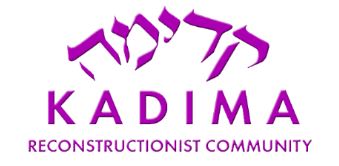Just yesterday, many national Jewish groups held a Day of Action Against Antisemitism. With complete agreement that abuse, violence, and attacks against Jews are heinous and wrong, I found myself sadly cynical about the event. Hosted by many groups who have actively fought against efforts - Jewish and not - for solidarity with Palestinian liberation the event was in part used to bolstering US policing in the name of community safety while further conflated Jewishness with Zionism. To assist my thinking this week, I have read this analysis from Jewish Currents and this analysis from the Political Research Associates. And, while those writings offered my mind some grounding, it has been this week’s parsha that has brought me closer to accessing my feelings on the matter.
In Beha’alotecha (“when you elevate”), this week’s reading from Numbers/Bamidbar, the Israelites prepare to leave the wilderness of Sinai after over a year of preparing for an intense journey. The year began with the end of over 400 years of enslavement that itself began with an antisemitic trope put by our ancestors in the mouth of Pharaoh: “The People of Israel are much too numerous for us. Let us deal shrewdly with them, so that they may not increase; otherwise in the event of war they may join our enemies in fighting against us and rise from the ground.” (Exodus/Shemot 1:9-10) It may be shocking to see this kind of dual loyalty trop in the Torah, but it reminds us of how long ago Jews had already internalized this message of otherness.
Having left the 400+ years of enslavement that resulted from this canard (though perhaps not the trauma it caused), the Israelites found themselves attempting to find home. Their tradition that likely bolstered their resilience and fortified their resistance while in Mitzrayim - that their God would act on their behalf, liberate them, and bring them to a land where their founding ancestral family sojourned - now had a different resonance. Many in fact did say in various ways “wait, why did we leave Egypt, again?! Let’s go back!” Believing there was some other place, I can imagine, might have brought hope and resilience in the face of suffering. But actually playing it out once freedom came, proved much more complicated.
And in this week’s parsha, the question of where is home struck me in a new way. Just before the Israelites are to truly set out from Sinai, with new purpose, new covenant, and a newly completed mishkan, Moses asks his friend, confidant, advisor, and father-in-law, Hovav (referred to as Yitro in Exodus): “We are setting out for the place of which Ado-nai has said: ‘I will give it to you.’ Come with us and we will be generous with you.” (Num 10:29) Hovav, though, had a home. “I will not go...but will return to my land, to the land of my birth” he replies to Moses. The Hebrew resonates with the call to Abraham toward the beginning of Genesis and the similarity was striking to me as I studied this week. As the Jewish-particularist stories of the Torah begin with our ancestors Sarah and Abraham leaving their home for somewhere else, Hovav here returns to home to live his purpose.
I could imagine Moses saying to himself: “Ouch. I wish we had a native land. The place of my birth is the place of enslavement, and there may not be any such place as ‘my land.’ Do I have a place in this world?”
This question of Jewish indigeneity hovers above, below, and around so much of the debate about Israel/Palestine today. And the Torah allows for many interpretations to this question, from the sociological to the theistic. With the lack of clarity, we are left wondering: where is our home? Are we from anywhere originally? For me, and I hope for you, I work to find home where I am. And where I am, as I began, is a place of soreness, exhaustion, shame, numbness, yearning, sadness, and anger, to name just a few. And in it, I will dwell, ready to learn, to connect, to stay present, and continue the journey through this wilderness of home. Through its bitterness and its joys. And, I am glad to be here with you.

 RSS Feed
RSS Feed